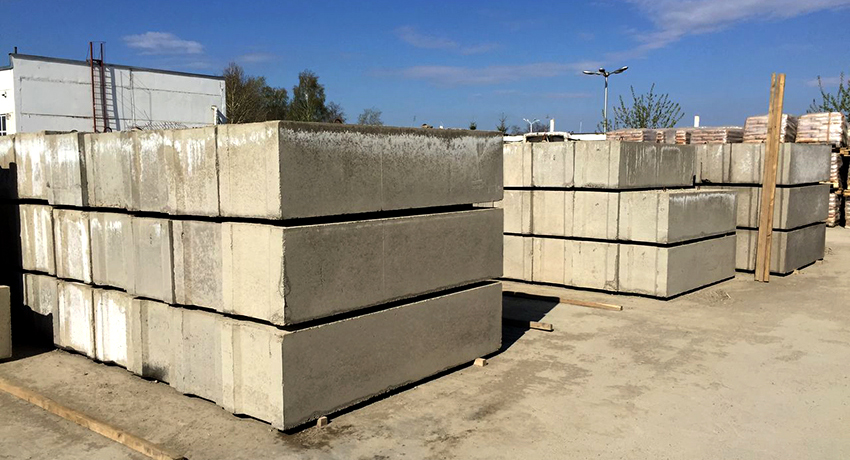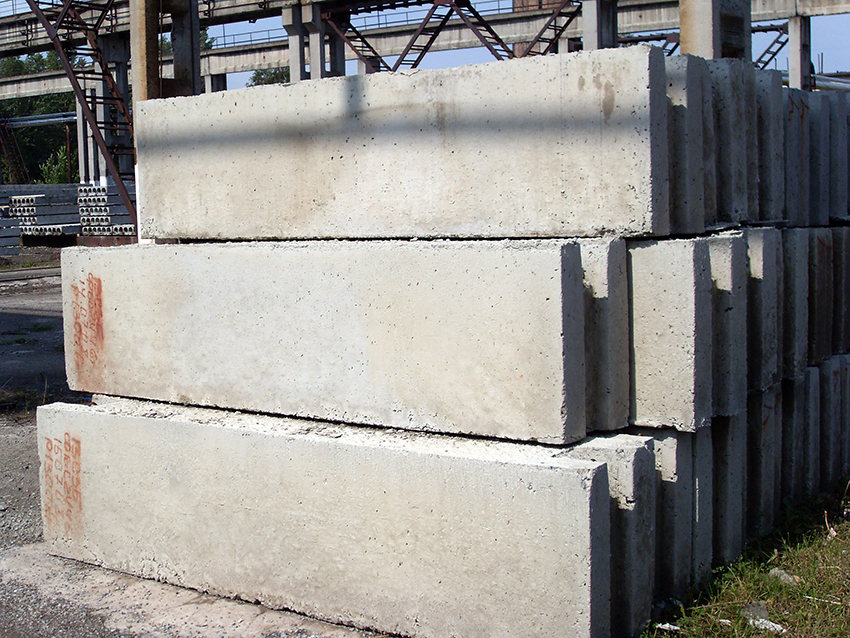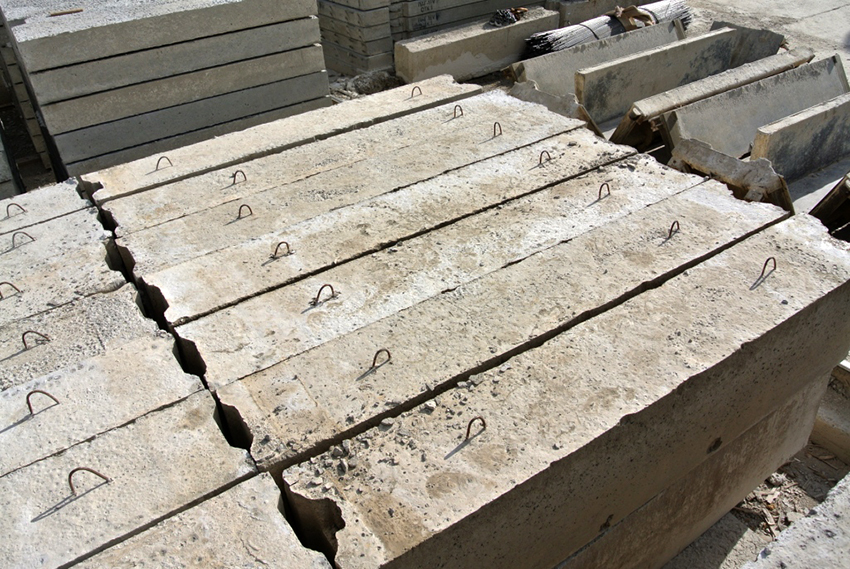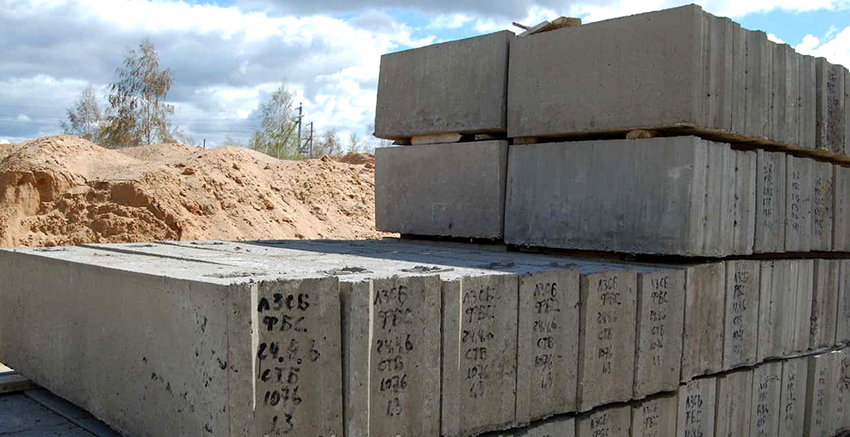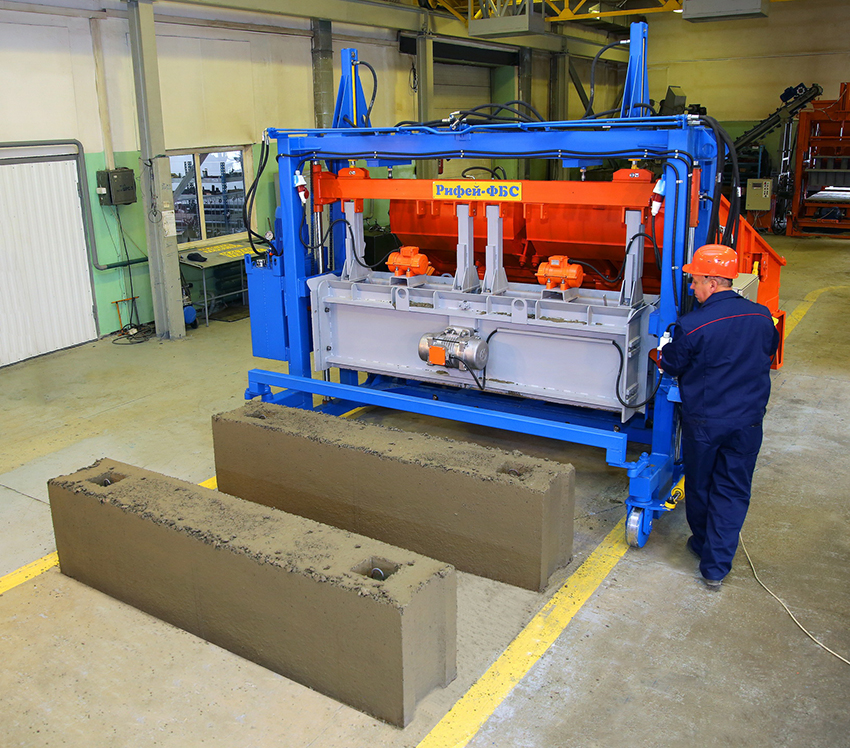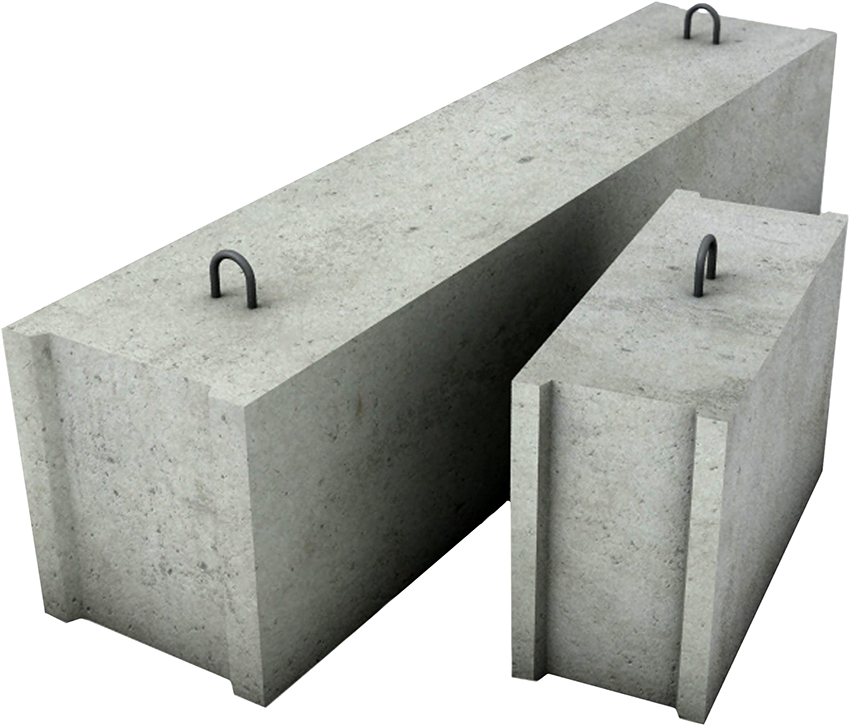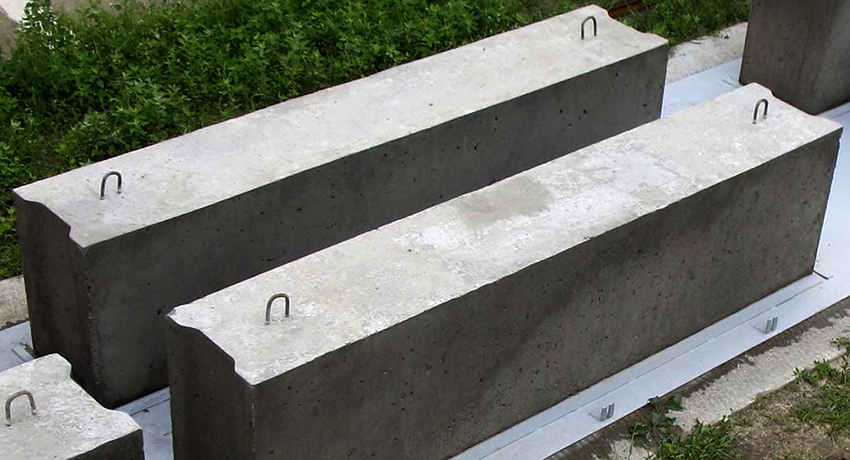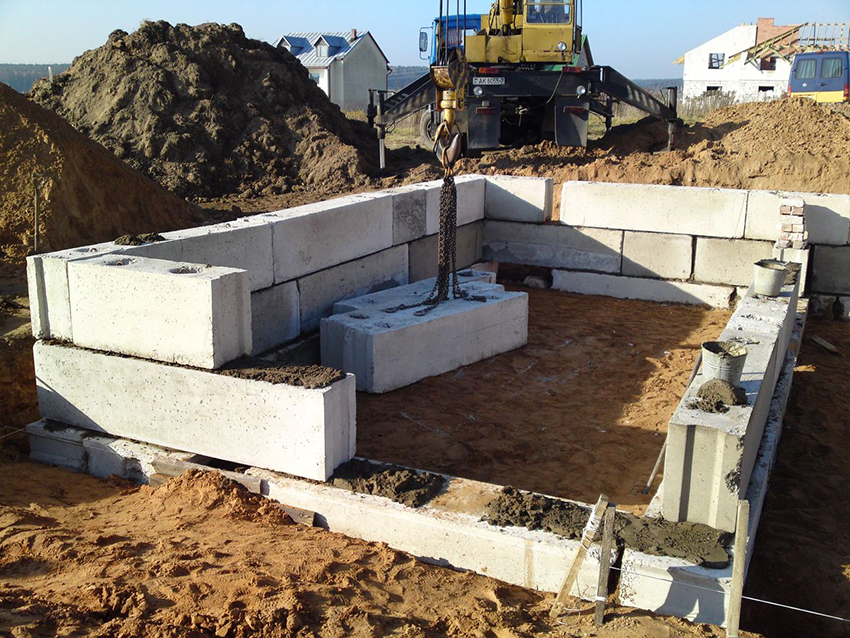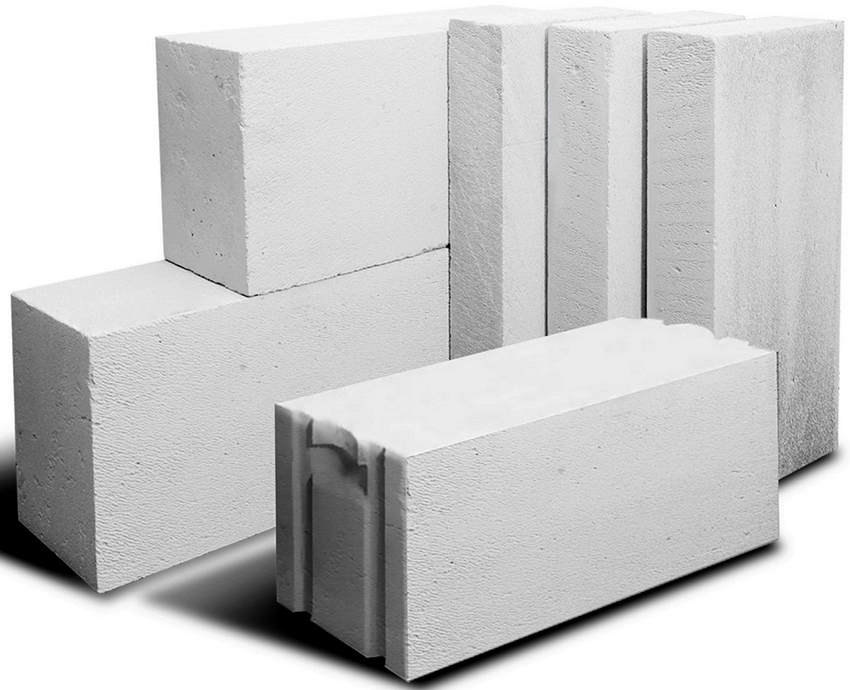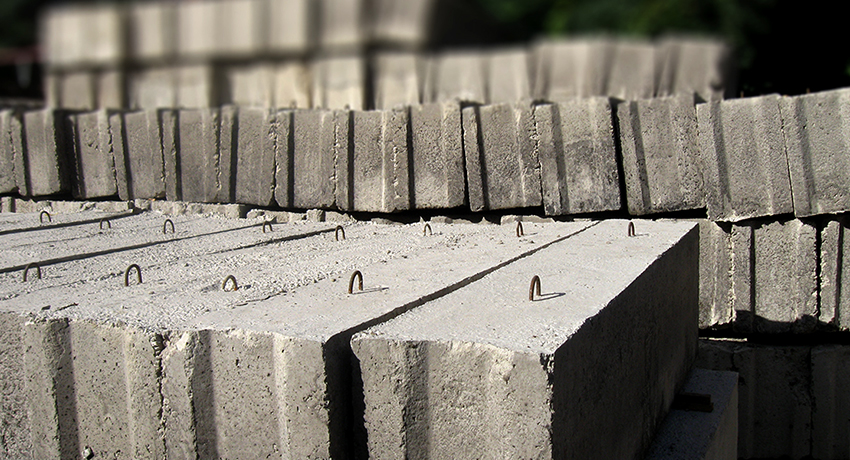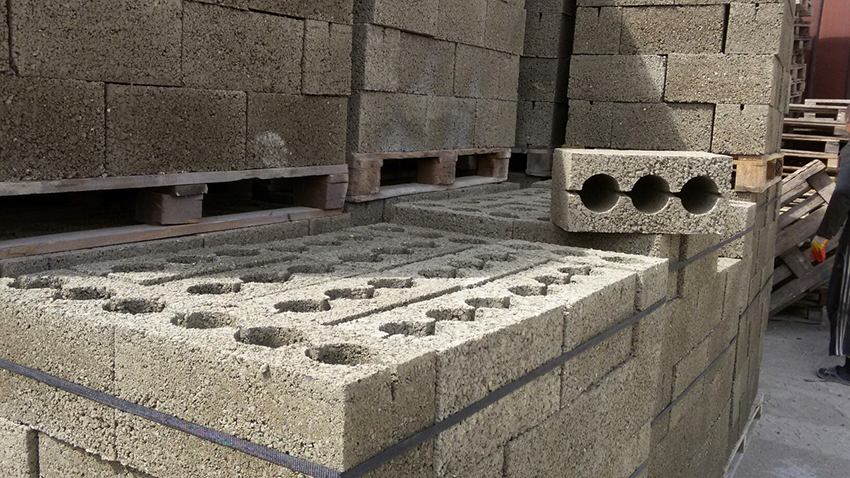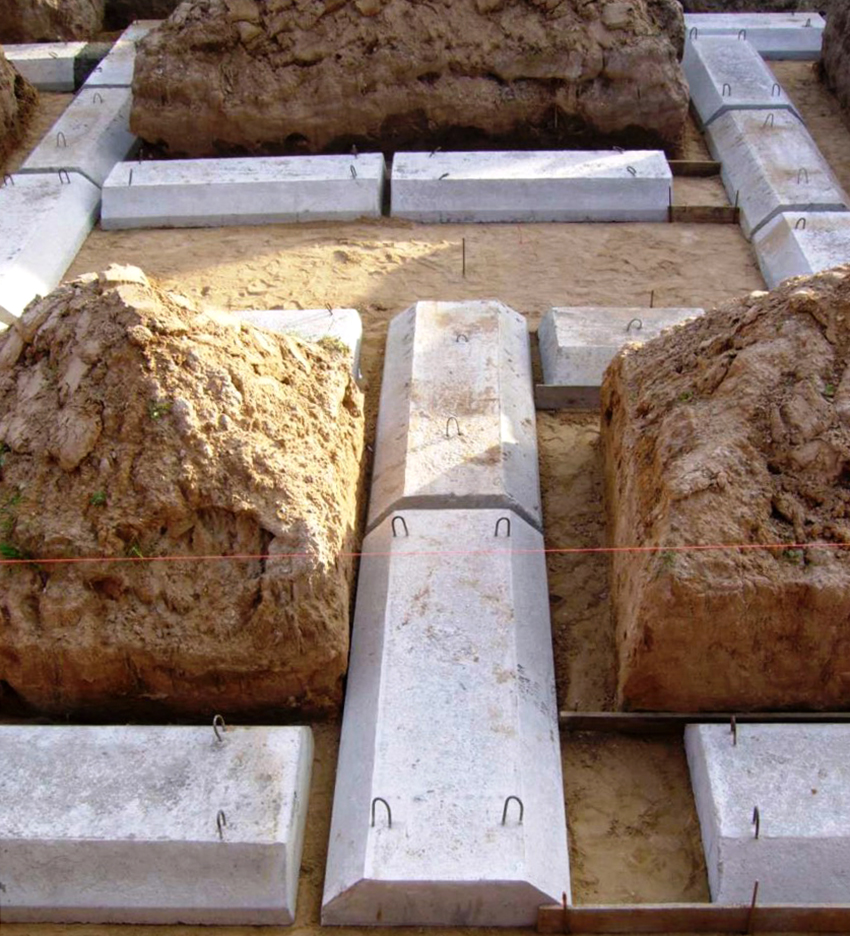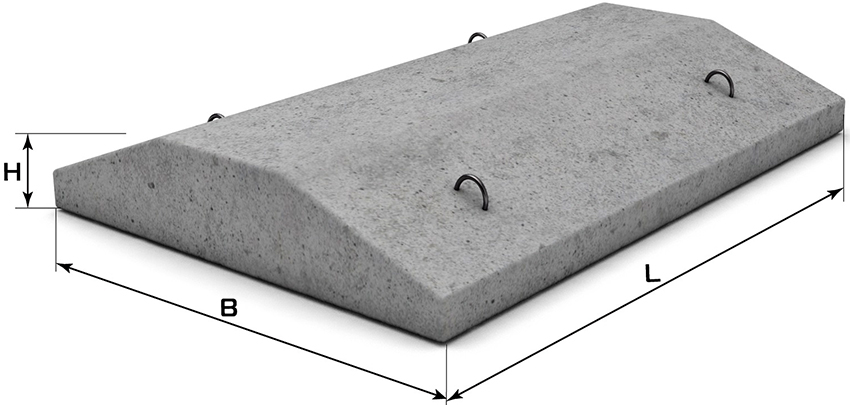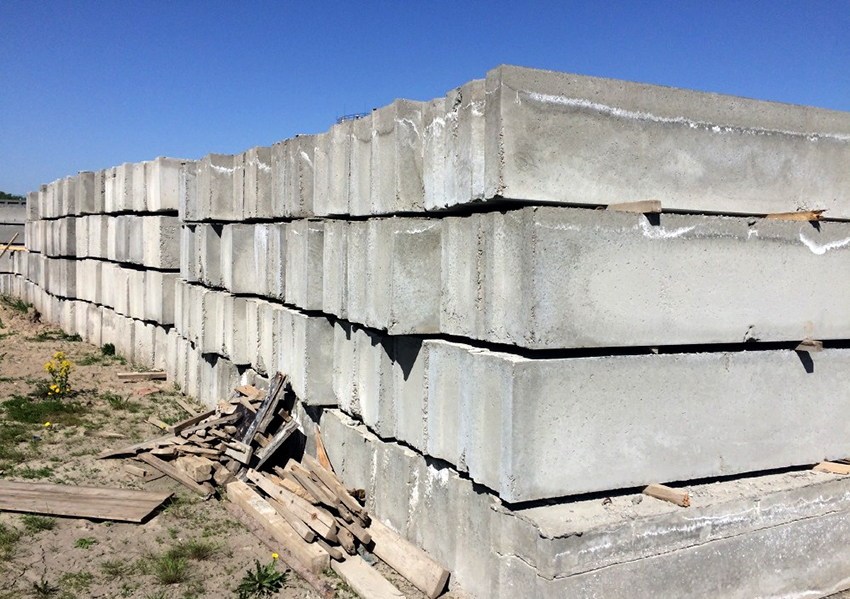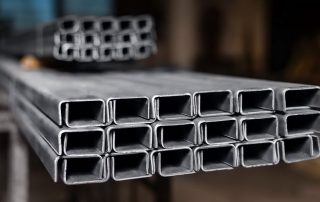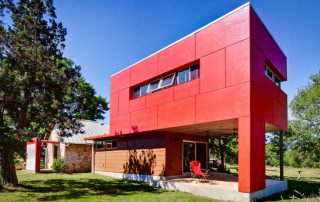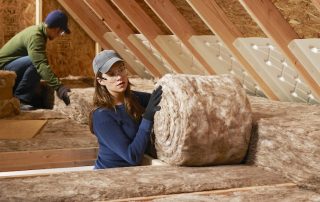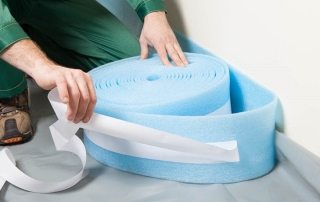The large-scale construction of recent years, which uses advanced technologies and architectural innovations, forces builders to choose materials that ensure high quality and accelerated construction times. One of the most popular options for reinforced concrete products are foundation blocks, which are characterized by high technical performance, a wide range of sizes and an affordable cost.
Content
- 1 What are the FBS foundation blocks
- 2 Advantages and disadvantages of reinforced concrete blocks for the foundation
- 3 How foundation blocks are made: technology features
- 4 Dimensional characteristics of reinforced concrete blocks FBS
- 5 How to choose the right size of the FBS foundation block
- 6 Small-sized foundation blocks for small buildings
- 7 Varieties of concrete blocks for a foundation by type of material
- 8 Classification of foundation blocks based on technical parameters
- 9 Manufacturers of concrete blocks for the foundation: product prices
What are the FBS foundation blocks
The foundation blocks are structural reinforced concrete elements, which are made of high-class heavy concrete. Products are manufactured in the form of a rectangular parallelepiped. The blocks at the production stage can be reinforced with metal rods. This helps to strengthen the elements, so that they can withstand significant weight loads.
To facilitate the loading, unloading and installation of products, each element is equipped with two metal eyes. To ensure a reliable and strong connection of products during their installation, small recesses are made in the end parts of the blocks, which are filled with masonry mortar.
As the name suggests, foundation concrete blocks are mainly used for the construction of reliable and solid foundations for buildings for various purposes. However, this does not limit the range of their use. FBS are in demand in construction and installation works of any complexity.
They are often used for the construction of multi-storey buildings, technical buildings, non-residential and industrial facilities. Due to the fact that a quick construction process is carried out with the help of products, foundation blocks are in demand for the construction of temporary and permanent fences, large construction projects.
Advantages and disadvantages of reinforced concrete blocks for the foundation
Concrete blocks for the foundation are recognized as popular among builders in the construction of structures of varying complexity.This is due to the characteristic advantages of the products in comparison with the traditional method of pouring concrete foundations.
The material has high strength characteristics and good load-bearing capacity. It is highly resistant to moisture, temperature fluctuations and fire. Due to the increased frost resistance and a reduced degree of thermal conductivity, the installation of foundation blocks can be carried out during the construction of objects in any climatic region, and work can be performed at any time of the year.
The material is resistant to various natural phenomena, including erosion by groundwater and soil heaving in the spring. The increased durability of the material gives the right to lay foundation blocks in adverse conditions, for example, in acidic and icy soils. The only exceptions are rocks.
The use of products in the construction of foundations ensures the creation of a reliable and durable foundation with a service life of at least 60 years. This is due to the fact that the products are manufactured in the factory, where the production technology is strictly observed and strict laboratory quality control of both the composition of the working solution and the finished product is carried out.
The foundation blocks have impressive dimensions and the correct geometric shape, which contributes to the quick and convenient installation of products. This significantly reduces labor costs and work time. After finishing the installation, you can immediately proceed to the next stage, without waiting for the mortar to set. This feature provides economic benefits, which is especially important in large-scale construction.
Among the disadvantages is the high cost of blocks. The significant weight of reinforced concrete blocks for the foundation will require the involvement of special equipment for their installation. There must be sufficient space on the construction site for machinery and storage of unused elements. In addition, the joints of the elements will not have sufficient tightness, which will require additional insulation measures.
How foundation blocks are made: technology features
In the manufacture of high-quality concrete blocks for the foundation, each manufacturer must strictly follow the sequence of actions and adhere to the design ratio of the constituent ingredients. To prepare the working solution, cement powder, water and aggregates are used.
The batch is prepared in a forced-type concrete mixer, where the mixture must acquire a uniform consistency. The ready-made solution is fed into special metal molds, the inner walls of which are pre-treated with industrial grease. At this stage, reinforcement can be laid, which affects the strength characteristics of the products and the price of blocks for the foundation. Each mold is divided into several compartments and is equipped with removable sides for quick and easy removal of products from it using a crane.
The molder evenly distributes the mixture, after which the concrete vibrates, which is carried out as a result of the use of a portable deep vibrator or directly on the vibrating platform. At this stage, the process of carefully compaction of the semi-liquid substance is performed.
Important! The duration of the vibration process is strictly regulated, since excess vibration will cause the concrete to delaminate.
After vibrating, the surface of the products is smoothed with a trowel. Products are removed from the molds, after which a protective film is applied to them. Then the blocks are watered. The process takes place in steaming chambers.The blocks are left for 7 days for final drying, after which the products gain tempering strength. The full strength of the material occurs after 28 days.
Dimensional characteristics of reinforced concrete blocks FBS
An important parameter of concrete blocks is their size. The length, width and height of the products are strictly regulated by the current regulations. The choice of the dimensions of the blocks is determined based on the design load of the object on the base, which must withstand the weight of the structure and evenly distribute it around the entire perimeter.
Important! Incorrect sizing of the block will lead to the subsequent destruction of the building.
The strength of the future structure, the technological process of assembling the elements, the period of the "zero cycle", the cost of products directly depend on the dimensions of the blocks. Block sizes are also selected based on the type of soil and its bearing capacity. The lower the stability of the soil, the larger the blocks should be. For construction on clay foundations, the largest elements should be preferred. For coarse soils, small products are suitable. The most popular option for a small building is the foundation of 20x20x40 cm blocks.
Helpful advice! To create a reliable and durable foundation, it is necessary to ensure the maximum packing density, which is carried out using multi-sized foundation blocks.
Important aspects are the thickness of the walls and floors, the number of storeys of the structure and its weight, which is determined by the size of the building and the type of building materials. Also, the dimensions of the blocks are selected based on the type of masonry. It should be remembered that the optimal number is considered to be five blocks per wall length.
According to GOST, FBS blocks are presented in 15 standard sizes. The length of the product can be 880, 1180 and 2380 mm. Blocks are produced in widths of 300, 400, 500 and 600 mm. The height of the product can be 280 and 580 mm. The smallest element has dimensions of 880x300x580 mm, and the largest - 2380x600x580 mm. Many manufacturers produce foundation blocks 200x200x400 mm, which can be laid without the use of special equipment.
How to choose the right size of the FBS foundation block
In the construction of foundations, foundation blocks of various sizes are used, and the unit price is directly determined by the dimensions of the element. For the correct selection of the number and size of FBS, the base is unrolled. On a special drawing, all the elements of the base are applied in length and height. Here, the ligation between the elements is taken into account, which reaches 25 mm.
The width of the blocks is selected based on the thickness of the walls of the future building. Here, slight overhangs of overhead elements are allowed. If brick walls are to be erected, the offset value should be about 40 mm on each side. For supporting structures with a thickness of 640 mm, blocks with a width of 600 mm can be used, for walls 510 mm - products with a size of 500 mm.
The length of the foundation is determined by the sweep, where elements of different dimensions should be schematically arranged in such a way as to ensure their even laying without the presence of significant protrusions.
Important! If it is not possible to properly expand the standard size products along the length of the base, they can subsequently be split along the length.
When erecting foundations and walls, blocks with a height of 580 mm are used. Products with a value of 280 mm are used as additional components in the case of making inputs and outputs of communications, holes in the base for air vents.
When choosing the dimensions of products, an important criterion is the weight of the foundation block, which affects transport logistics.The mass of the product is in the range of 380-1960 kg. It is necessary to select a vehicle that will transport materials to the construction site. Based on the carrying capacity, special equipment is selected that will directly carry out the laying of products.
Small-sized foundation blocks for small buildings
According to the industry standard, small-size foundation blocks are available in lengths of 400 and 600 mm. Such products are characterized by high strength and low weight. Foundation blocks are made mainly of heavy grades of concrete, characterized by good load-bearing capacity, which makes it possible to use products to create the foundations of a structure made of wood or foam concrete.
For their installation, it is not required to involve lifting equipment, which reduces the item of financial costs for construction. However, the use of foundation concrete blocks 20x20x40 cm increases labor costs and the time period for performing work.
Products are often used for the construction of foundations on sandy soils, basement walls and cellars. A good and inexpensive solution is to create a columnar foundation of 20x20x40 cm blocks for small cottages or country houses. Such elements are expediently used in combination with cast strip bases. As additional elements, specialists often use foundation concrete blocks 20x20x20 cm, with which you can create ventilation holes in the base for air vents or laying utility lines.
Small-sized foundation blocks are suitable not only for the construction of load-bearing walls, columns and fences - it is advisable to use them as supporting elements in basements, semi-basements and basements.
Varieties of concrete blocks for a foundation by type of material
According to GOST, foundation blocks can be made using different types of concrete mix. There are different types of products depending on this. Cement, concrete and reinforced concrete products are made mainly of heavy grades of concrete, which contributes to the creation of blocks with maximum density, which are characterized by high bearing capacity. The foundations and structures created from this type of foundation blocks are reliable and durable.
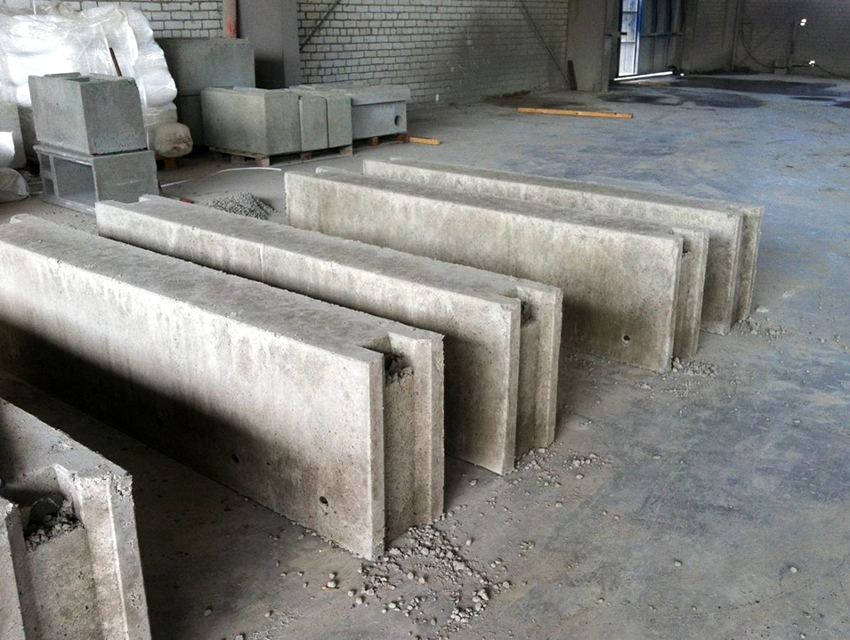
Silicate foundation blocks are made of silicate-based concrete with the addition of blast furnace slag
Important! To give the blocks additional strength, crumb from basalt or granite is added to the finished solution.
The production of silicate foundation blocks resembles the brick making technology. Silicate-based concrete is used as a working solution, and the amount of high-grade cement should not exceed 14% of the total volume. To gain sufficient strength, the batch is heated to a certain temperature, after which it is slowly cooled. To improve the waterproofing qualities in the production of silicate products, ground blast furnace slag is added.
Related article:
Reinforced concrete blocks: a universal material for the construction of reliable buildings
Distinctive features of products. Scope of use. Varieties of blocks by type, size and area of application. The procedure for installing reinforced concrete blocks.
Expanded clay concrete foundation blocks contain expanded clay, which expands the strength set up to 70%. This type of product belongs to the class of lightweight materials. These are foundation blocks for hand-made masonry.
Important! Expanded clay concrete and silicate foundation blocks are often used in the construction of structures of complex shapes.
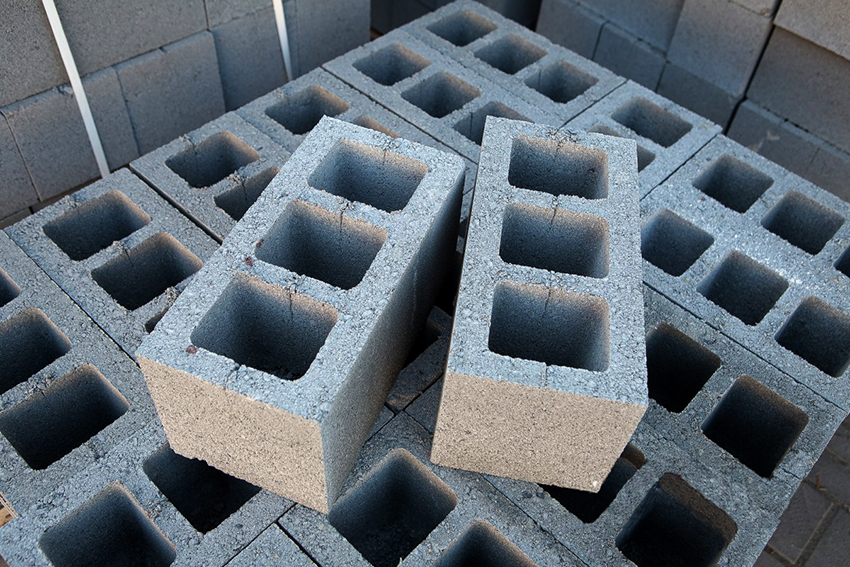
Cinder blocks are made from slag with the addition of broken brick, sand, gravel, crushed stone, sawdust and perlite
A cinder block is a widely known variant of foundation blocks since Soviet times.Blast furnace slag was used for its production. Today, gravel, sand, broken brick, crushed stone, sawdust, perlite and concrete construction waste are added to the finished mixture. The technical parameters of the product depend on the filler option. Cinder blocks are distinguished by an uneven, unsightly surface, but low cost, which makes the material in demand for the construction of garages and small household buildings.
Classification of foundation blocks based on technical parameters
In accordance with the production technology, foundation blocks are predominantly produced as solid or solid ones. In turn, the products are divided into reinforced and options without reinforcement, which affects the price of FBS blocks. The dimensions of the products are strictly regulated by the current standard.
The most popular option, widely used in construction, is full-bodied reinforced blocks. They are characterized by a high bearing capacity, which allows the use of blocks in the construction of foundations for different buildings.
For the construction of lightweight foundations or when arranging the interior walls of basements, hollow foundation blocks are often used. Products contain square holes located at the bottom of the elements. They are made of concrete grade M150. Sizes of concrete foundation blocks are in a wide range. However, the length of the products is presented in a single value - 2380 mm.
There is a type of block with a longitudinal cut in the structure cavity. This hole is used for laying utilities. For the production of elements, concrete of the M100 brand is used. The standard value for the length of the products is 880 mm, the width is 400-600 mm, and the height is 580 mm.
Important! This type of blocks is made to order.
Other options for reinforced concrete foundation blocks
A special type of foundation blocks are trapezoidal products, which are used as a base for a strip or column foundation. They contribute to uniform shrinkage of the entire structure. Such products are produced in the form of a plate. They are characterized by a large area of one of the surfaces, which increases the stability of the structure. Standard sizes of foundation pads:
- length - from 780 to 2980 mm;
- width - from 600 to 3200 mm;
- height - 300 or 500 mm.
Important! Some foundation blocks can be designed for decorative cladding, which is important when using products for wall construction.
All types of FBS foundation concrete blocks have the same manufacturing technology. However, the strength of products can be carried out by drying or steaming. The first option will be traditional, it consists in natural drying and hardening of elements after molding. For this, the products are kept in a well-ventilated area for several weeks.
The steaming process takes less time. It occurs in conditions of high air humidity under the influence of high pressure, as a result of which the products gain tensile strength up to 70%.
Manufacturers of concrete blocks for the foundation: product prices
To guarantee the construction of a solid and durable foundation, you should choose foundation blocks from reliable manufacturers who specialize in the manufacture of high-quality certified products.
There are several popular factories among domestic manufacturers. One of the largest enterprises for the production of building materials from concrete is OJSC Industrial Building Parts Plant.The products are characterized by high workmanship, durability and good technical performance. All batches of products undergo strict quality control in a special accredited laboratory. The initial price of a reinforced concrete block for the foundation is 1200 rubles.
No less popular manufacturer is the Vira company, which produces about 400 items designed to ensure the reliability of any structure, where the foundation blocks are of particular importance. High grade concrete is used for the production of products. The products have technical passports and quality certificates. The price of a reinforced concrete foundation block starts at 1500 rubles.
A well-known domestic manufacturer that offers all types of foundation blocks is the Master company. The products are of high quality and affordable cost.
The Alexandria expanded clay plant produces a wide range of concrete products. Special attention should be paid to small-sized concrete blocks for the foundation 20x20x40, the price of which is 55 rubles / piece.
Among reliable domestic manufacturers for the production of concrete blocks, one cannot fail to highlight the Zlatoust plant, which offers a wide range of sizes of foundation blocks of various types. The products are distinguished by their affordable cost without compromising quality. The price of reinforced concrete blocks for the foundation starts from 950 rubles / piece.
The foundation blocks are characterized by high strength indicators, resistance to various external factors, high bearing capacity and durability. The use of this type of product in construction can speed up its process. The key to a high-quality foundation or structure is the correct choice of block dimensions. You should pay attention to how much the foundation blocks cost. The high price testifies to the quality of the product and to a reliable manufacturer.
